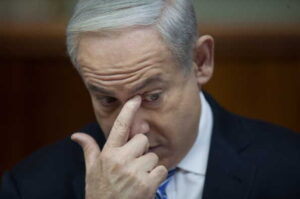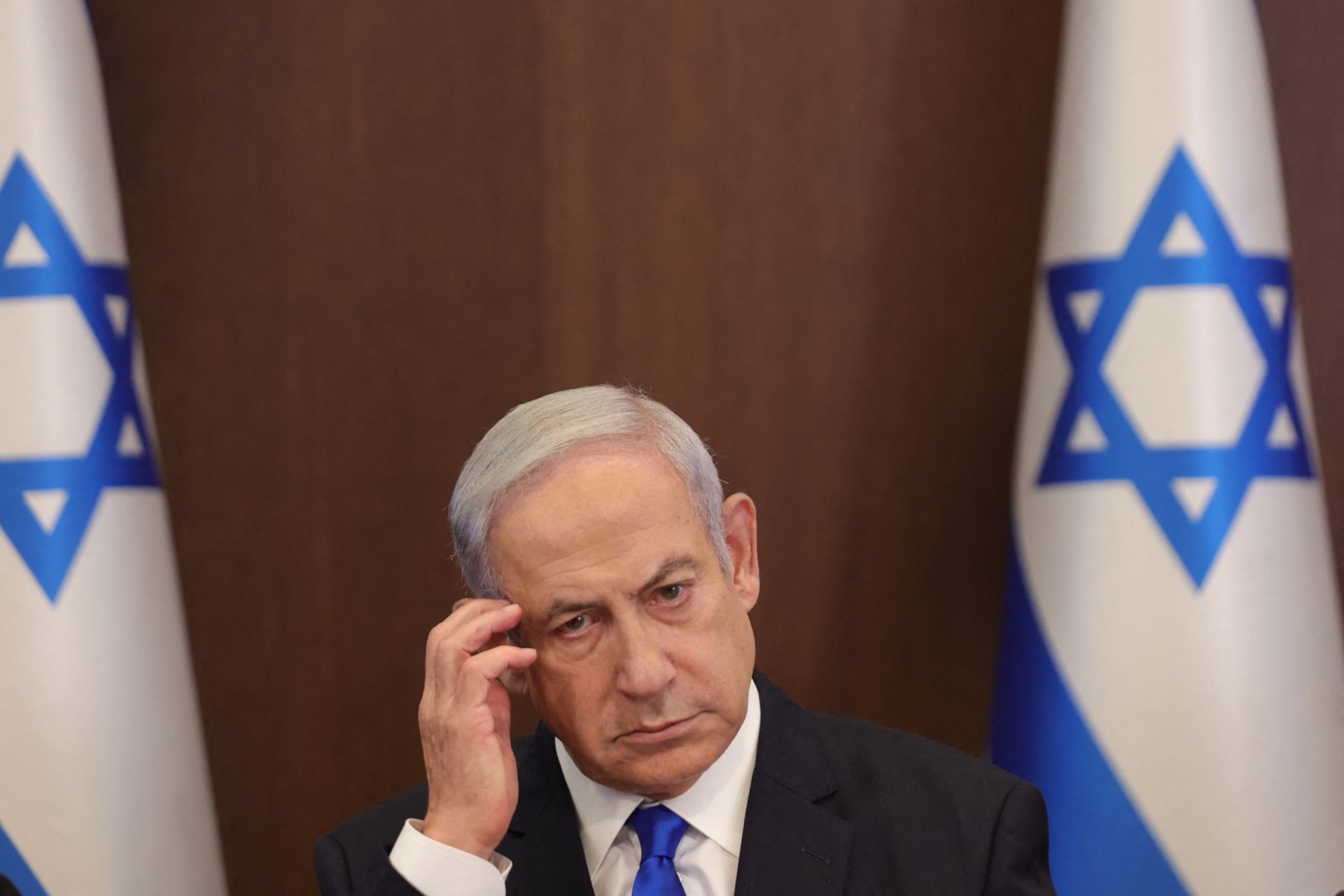Israel is scared: The U.S. has been meeting with Iranian representatives for the last two weeks in Oman. Steve Witkoff has been representing the United States, and now they’ve announced that the technical experts are going to start meeting. They were supposed to meet this week, but it got delayed until this Saturday. So this weekend, the technical experts begin to meet.
Iran’s Three-Phase Proposal: Israel is scared?
Iran back here on the 18th, proposed a three-point plan to the US on how to make an agreement with Iran. Phase one would see them stop their enrichment program. Right now they have a bunch of uranium up to the 60% level. They would stop it and limit it to the 3.67% they need only for a civilian program.
In exchange, the U.S. would release certain frozen assets belonging to Iran controlled by the US and allow Iran to sell more oil so they can get some more money going in their economy.
Phase two, according to their plan, would allow IAEA inspectors to come into their nuclear sites and to inspect whatever is going on, including maybe even some hidden sites that they had kept back from the inspectors in the past in exchange for sanctioned relief.
In other words, the new sanctions that Trump has put on Iran would be released so that they could allow them to do more things in their economy.
Phase three would stop all enrichment. They would still keep their enrichment equipment, but they would stop enrichment, and they would take all materials they had previously enriched up to sixty percent. They would move it out of the country, put it in another safe place out of their control.
And as a result, the U.S. would then remove all sanctions. Israel is scared of these phases.
Iran’s Nuclear Brinkmanship Continues

So stepping back from this proposal that has been put forth by Iran, that’s the centerpiece of discussions. And all it is really done is sucked Trump and the U.S. into a very complex negotiation, requiring much discussion before anything actually gets done.
And essentially what’s taking place is the same stuff that happened back when Obama was negotiating with Iran through the JCPOA. And that took a long time for that to take place.
And it goes to a very famous Iranian and Persian negotiating tactic, and it goes something like this: If you want to catch a fish that’s hard to catch, all you have to do is keep muddying the waters, and eventually the fish has to come up out of the muddy waters to the surface, and that’s when you catch them.
And Iranian tactics are the type of where you confuse their negotiating in a conflict negotiation, confuse the issues, make them complex, discuss them back and forth all the different options.
In the meantime, time goes by for Iran to continue doing exactly what they’re doing right now, and you have a sense of that you’re making progress with them when in fact, no progress is being made at all. you can read more about Israel is scared Here.
Israel’s Concerns and U.S. Hesitation
I would remind everybody about the old agreement that Iran did enter into that when Trump came in the first time that he discontinued, that agreement, the one that negotiated with President Obama, only lasts until October 24th of this year. And then that whole agreement goes away and all constraints on Iran go away from previous negotiations.
Now, what compounds this problem is that Iran is on the brink of nukes, and protracted negotiations does not disturb that issue at all. If Iran wants to take their 60% material and process it up to 90% weapons grade material, the entire load of material they have can simply be done in a matter of two weeks.
That’s according to the IAEA and they believe that they could build a minimum of six bombs, but there’s others who speculate it could be even more up to like 30 of them, and they could continue to process and build enough material to build multiple bombs each month thereafter.
you can read more about Israel is scared: Iran-US talks threaten Israel’s security Here.
Hezbollah’s Decline and Regional Shifts
The Lebanese government is still acting against Hezbollah. You had heard that last week that Hezbollah leaders have been told to leave, moving out to South America. The Lebanese government and the army are taking over the areas where Hezbollah was at.
They’re defining weapons, caches, capturing weapons and destroying tunnels and basically disassembling all of the infrastructure that Hezbollah had built, and that’s good progress with regard to that.
Here in the United States, we’ve been seeing news reports going on frequently in the most recent is the one having to do with Harvard University.
Harvard University has not done anything about its systemic anti-Semitic activity. And by systemic anti-semitic activity, I’m talking about, they’re doing nothing to block the protests that we’re for pro Hamas, anti-Jewish attacks on Jewish students going to Harvard.
Global Markets React to Mixed Signals from Washington AND Israel is scared

The global relief rally wavers as investors scramble to decode the latest messages from the Trump administration. President Trump hinted at a potential new tariff rate for China within weeks but denied reports of possible changes to levies on cars and auto parts.
Meanwhile, Ukrainian President Volodymyr Zelensky arrives in South Africa for a historic visit as Trump pressures for a peace deal. Israel is scared of all of these.
South Africa’s Treasury has reportedly abandoned plans for a contentious VAT hike, opting instead to adjust spending to cover the shortfall.
The proposed increase—0.5% to 15.5% in the first year, followed by another 0.5%—faced fierce opposition from coalition partners, including the Democratic Alliance. The decision aims to stabilize the government of national unity while addressing economic strain on consumers.
President Trump’s mixed signals on trade continue to unsettle markets. While he suggested tariffs on China could ease within weeks, Treasury Secretary Scott Bessant cast doubt on a swift resolution, stating a comprehensive deal might take years.
Wall Street Journal reports indicate potential rates between 50-65%, with higher tariffs targeting goods tied to national security. Retail giants like Walmart and Target have warned of supply chain disruptions, adding pressure for a compromise.
Iran Nuclear Talks: Progress or Stalling Tactic?
Iran’s Foreign Minister claims negotiations with the U.S. are “on the right track” ahead of a third round of talks in Oman. Tehran’s three-phase proposal includes freezing enrichment, allowing IAEA inspections, and removing enriched uranium—all contingent on sanctions relief.
However, satellite images show Iran fortifying nuclear sites, raising doubts about its commitment. Israel warns that prolonged talks only buy time for Iran’s nuclear advancement. why Israel is scared? from these.
Harvard University faces funding cuts after failing to curb anti-Semitic protests, including pro-Hamas demonstrations and building takeovers. to all of these happens Israel is scared.
Instead of reforms, Harvard sued the U.S. government, arguing its right to permit such actions under free speech—a move critics call “utterly ridiculous.” The controversy coincides with muted U.S. observances of Holocaust Remembrance Week, highlighting rising anti-Jewish sentiment on campuses.
Ukrainian President Zelensky’s state visit to Pretoria marks a diplomatic tightrope for South Africa, which has resisted aligning with either Kyiv or Moscow.
Analysts see the trip as symbolic, given waning Western support for Ukraine and South Africa’s BRICS ties to Russia. Meanwhile, Trump pressures Zelensky to accept a peace deal, accusing him of prolonging the war.
Commodities Shift: China Diversifies Energy Imports
Trump’s tariffs are reshaping global trade flows, with China turning to Middle East suppliers for liquefied petroleum gas (LPG) to replace U.S. imports. The pivot affects plastics and propane markets, while LNG cargoes from the U.S. to China drop to zero. The UAE’s Adnoc has stepped in, signing three supply deals with Chinese firms.
U.S. equity futures dip after a strong Wednesday close, with S&P 500 earnings off to a tepid start (40% beat rate, the lowest since 2019). Brent crude holds above $66 amid OPEC+ oversupply concerns. Later today, Alphabet’s earnings will test tech sector resilience. and finally Israel is scared.


